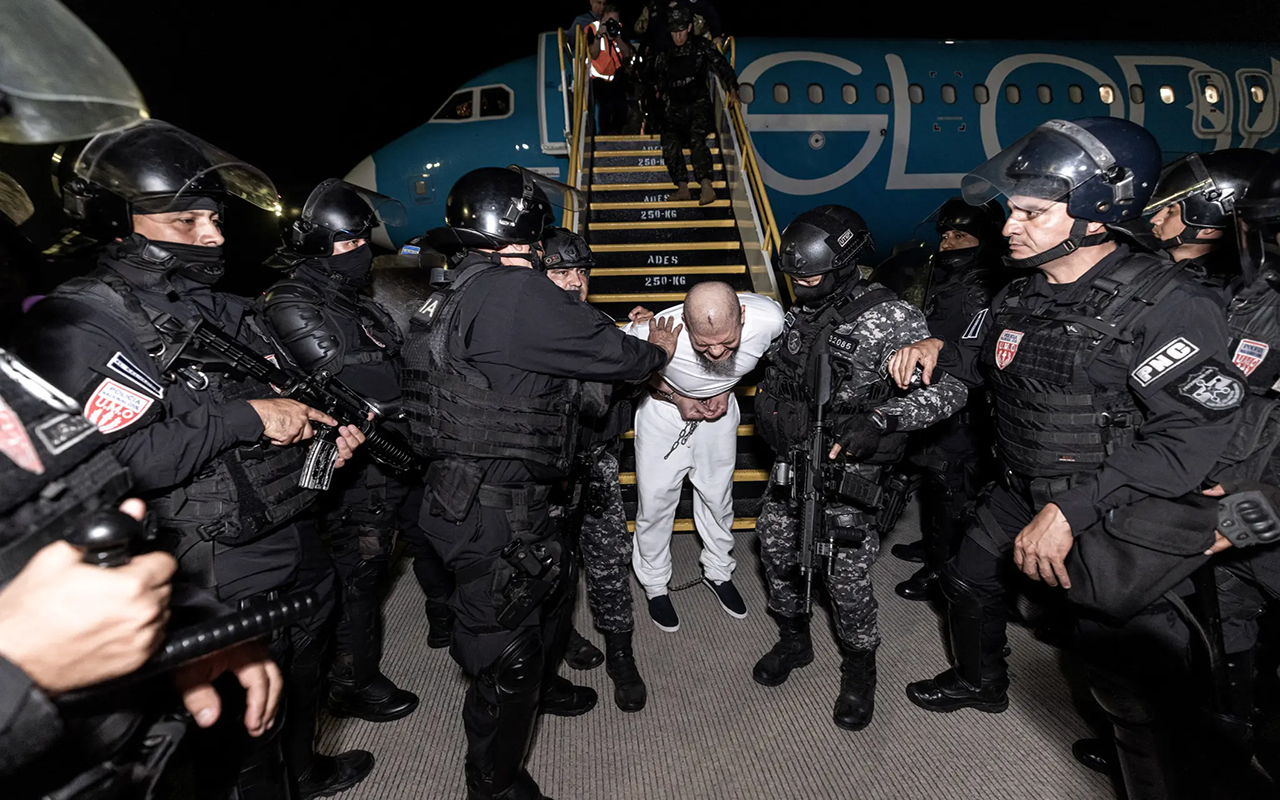
Gina Haspel: A torturer in chief
The nominee to the direction of the Central Intelligence Agency (CIA), Gina Haspel, reminds us of the dark and anti-human nature of an organization that has…
During the month of March, President Trump announced that his candidate for the management of the Central Intelligence Agency (CIA) was the agent Gina Haspel, a character unknown to the public, but with a controversial record in the agency.
"Gina Haspel will become the new Director of the CIA, and the first woman so chosen," the president wrote on Twitter, making public his decision to dismiss his Secretary of State, Rex Tillerson, and replace him with the then director of the CIA, Mike Pompeo.
However, the New York Times soon recalled that just a year after the September 11 attacks, "the CIA dispatched the veteran undercover agent Gina Haspel to oversee a secret prison in Thailand," as a frantic search of suspected terrorists participating in the Al-Qaeda group. Under the direction of Haspel, the prison witnessed "three waterboards" and "brutal interrogation techniques."
In a similar way, the Washington Post reported that the detainees, known as Abd al-Rahim al-Nashiri and Abu Zubaydah, were subjected to brutal interrogation techniques, some of which were recorded causing "some intelligence agents to break into tears" while watching them, but thanks to Haspel's cooperation, "the tapes were destroyed".
In his column for the medium, Richard Cohen cites Steve Coll's famous book, "Directorate S", which recapitulates the facts of the "endless war in Afghanistan." Coll describes the interrogation program of the CIA as a "dystopia tinged with science fiction of intimidation and domination over the prisoners", elaborated by psychologists who built scenarios for the worst psychological terror since he ventured into drug-induced mental control in the 1950s.
At age 61, Haspel has a career of more than three decades in the agency, having joined in 1985 and held positions as Deputy Director of Foreign Intelligence and Undercover Action, "an office of the Clandestine National Service that is responsible for secret missions", explains the BBC.
This type of mission follows the line of the so-called Operation Condor, carried out by the CIA in collaboration with local governments in Latin America during the 1970s to "prevent the spread of communism" in the region.
In his 1978 book, Hidden Terrors, the journalist A.J. Langguth described the intervention strategies designed by the agency in conjunction with the so-called Death Squads in Brazil and La Triple A in Argentina and Uruguay.
According to the author, the US government "provided torture equipment to Brazilians and Argentines, offering advice on the degree of shock that the human body can withstand."
This type of operations arise as a result of the establishment of the so-called School of the Americas in the Panama Canal during the decade of the 60s, from where characters like Leopoldo Fortunato Galtieri (Argentine dictator), Omar Torrijos (Panamanian dictator), Manuel Antonio Noriega (Panamanian dictator), Manuel Contreras (military director of the Directorate of National Intelligence of dictator Augusto Pinochet in Chile) and Vladimiro Montesinos (ex-adviser to Peruvian President Alberto Fujimori, and responsible for the mass murder of paramilitaries in Peru) emerged.
For several decades, the CIA infiltrated and propelled authoritarian governments in Latin America, putting at the disposal of dictators’ mechanisms of torture, imprisonment, and annihilation that claimed the lives of millions of people.
RELATED CONTENT
Its mission was always "argued" by the antagonism of regimes such as the Soviet Union during the cold war, but during the decade of the 90s, its focus was on counter-terrorist operations, especially with the creation in 1986 of the Counterterrorism Center.
September 11 only gave the green light to the bloody mission of the agency, and thanks to the Freedom of Information Act and the investigation of the Congress have come to light a lot of illegal activities by the CIA, especially as to violations of human rights.
In addition, a report from the European Parliament confirmed in 2006 that the CIA has been "directly responsible for the abduction, transfer, kidnapping, and detention of terrorism suspects" in European territory, and since then its work has resulted in the creation of clandestine centers of detention.
If President Obama tried to close the Guantánamo concentration camp - used by the government since 2002 - the CIA's reputation surpasses any gesture of vindication.
With the arrival of Donald Trump and his eternal flirtation with violence and the radicalization of American positions, characters like Haspel now have a second chance "to shine".
During her hearing before the Senate for the confirmation of her nomination, Haspel promised that he "will not allow torture" again in the CIA, as if more than 60 years of history could be suspended in a heartbeat.
"I understand that what many people around the country want to know about are my views on CIA's former detention and interrogation program," Haspel said. "Having served in that tumultuous time, I can offer you my personal commitment, clearly and without reservation, that under my leadership the CIA will not restart such a detention and interrogation program.”
Being pressured about her position on the usefulness of torture, Haspel responded to Senator Kamala Harris (D-CA) that "I don’t believe that torture works." However, she did acknowledge that "we got valuable information from the debriefing of Al Qaeda detainees, and I don’t think it’s knowable whether interrogation techniques played a role in that."










LEAVE A COMMENT: